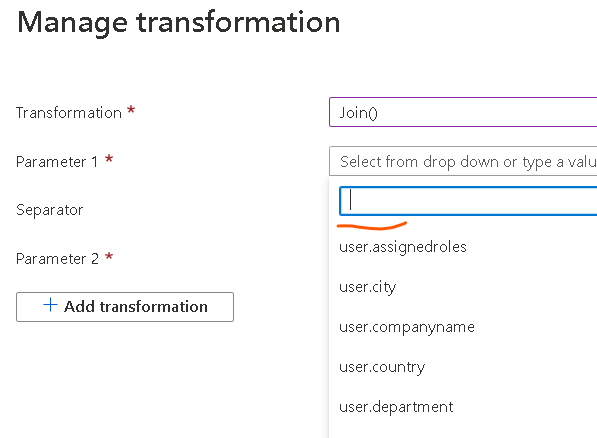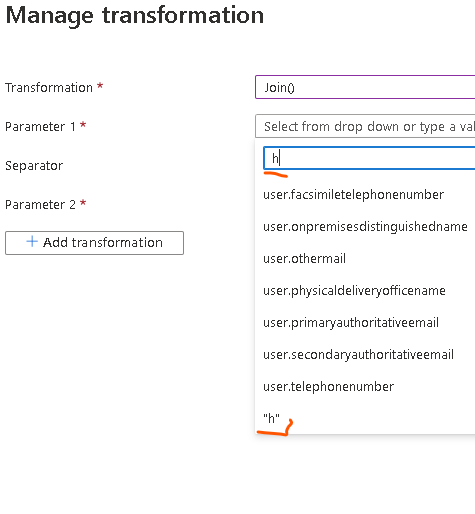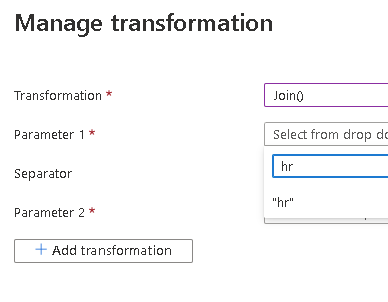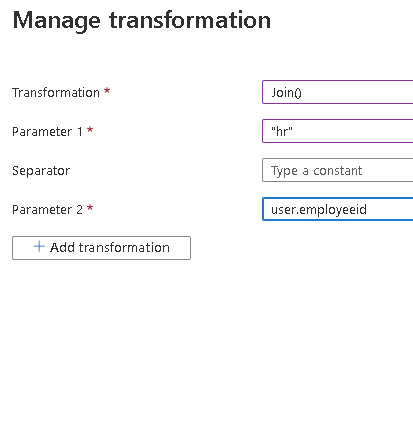Hello @muraamar ,
I think you are referring to the Special Claims - transformations section of the article Customize app SAML token claims which describes one way to use the Join() function. The claim transformation section below provides more details.

If you need a custom claim like you have specified , you will need to manually type the claim . Please find the screenshots for more clarifications.





This should return your claim in the below format .
<Attribute Name="http://schemas.microsoft.com/identity/claims/Hrclaim">
<AttributeValue>hr123453</AttributeValue>
</Attribute>
Hope this helps. I have written another answer with details on similar issue and would encourage you to check the same as well. In case this does not help you or I have misunderstood your query , please do let me know more details in comments and we will continue the conversation . If this worked for you , please do accept this as answer so that it helps other members searching for similar queries.
Thank you.